The first instructors have completed the course! PCPM supports the health care system in Palestine
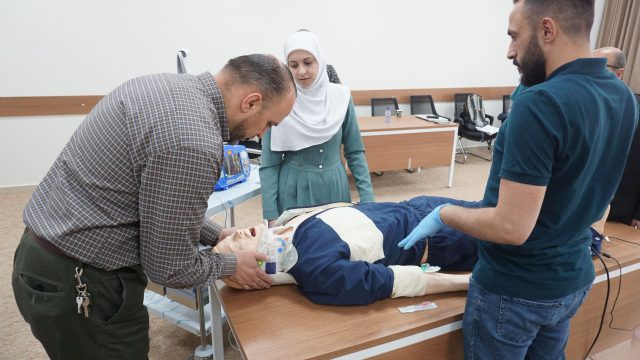
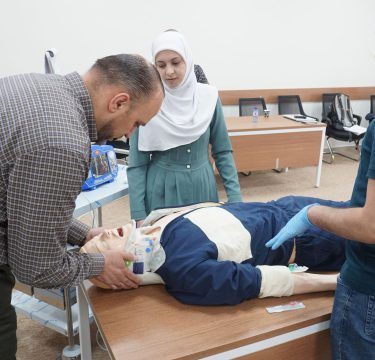
The three-day training, held at Al-Ahli Hospital in Hebron, Palestine, concluded a two-year training course developed by the PCPM together with Polish experts. The result is the receipt of instructor certificates by ten medics. A total of 26 medics are expected to receive PATLS certification.
– The Palestinian Advanced Trauma Life Suport (PATLS) is a special certified program created to meet the needs of the Palestinian Authority. It was developed jointly with the PCPM and the Palestinian Ministry of Health based on the latest international guidelines. The overarching goal of the project is to train instructors who, in cooperation with the Palestinian Ministry of Health, will be able to independently train other medics in advanced life-saving procedures, explains Zuzanna Wojcińska of the PCPM.
– We were trained for nine months by a Polish team. It was extremely developing. In addition to the obvious medical procedures, we were trained on how to transfer knowledge, says Ismael Alnawaja’a, who adds, “Thanks to this training, I feel more confident as a nurse and as an instructor.
– I think we will train more students after certification. The Ministry of Health has a plan to open a training center. They want to train as many medics of all professions as possible, says Mohammad Wazwaz, who has also completed the instructor course.
Nihaya Hussein, director of the Emergency Relief Division at the Palestinian Ministry of Health, is in charge of coordinating activities together with the PCPM. She reports that the Palestinian Ministry of Health wants to train all medics in the West Bank within three years.
– There are more than 900 of them, and we want to do it in three years. Without the PCPM, this would not be possible,” Hussein concludes.
Training saves lives
Project coordinator Ewa Jakutajć emphasizes that medical teams face many challenges on a daily basis.
– Ambulances very often have difficulty getting to the injured and then to hospitals. The first minutes after an incident are decisive in saving a life. So it is extremely important that all personnel are properly trained and able to provide the most effective assistance in any situation, PCPM’s Jakutajć emphasizes.
– I learned how to properly do a chest drain. Before, I did it very rarely, and thanks to this training I felt more confident. Last week, thanks to the skills I acquired, I saved someone’s life, without this procedure the patient would have died. The PCPM training I attended focused on dealing with critical cases. In such situations, you need a quick response. The training taught me this, says Anas Alamleh.
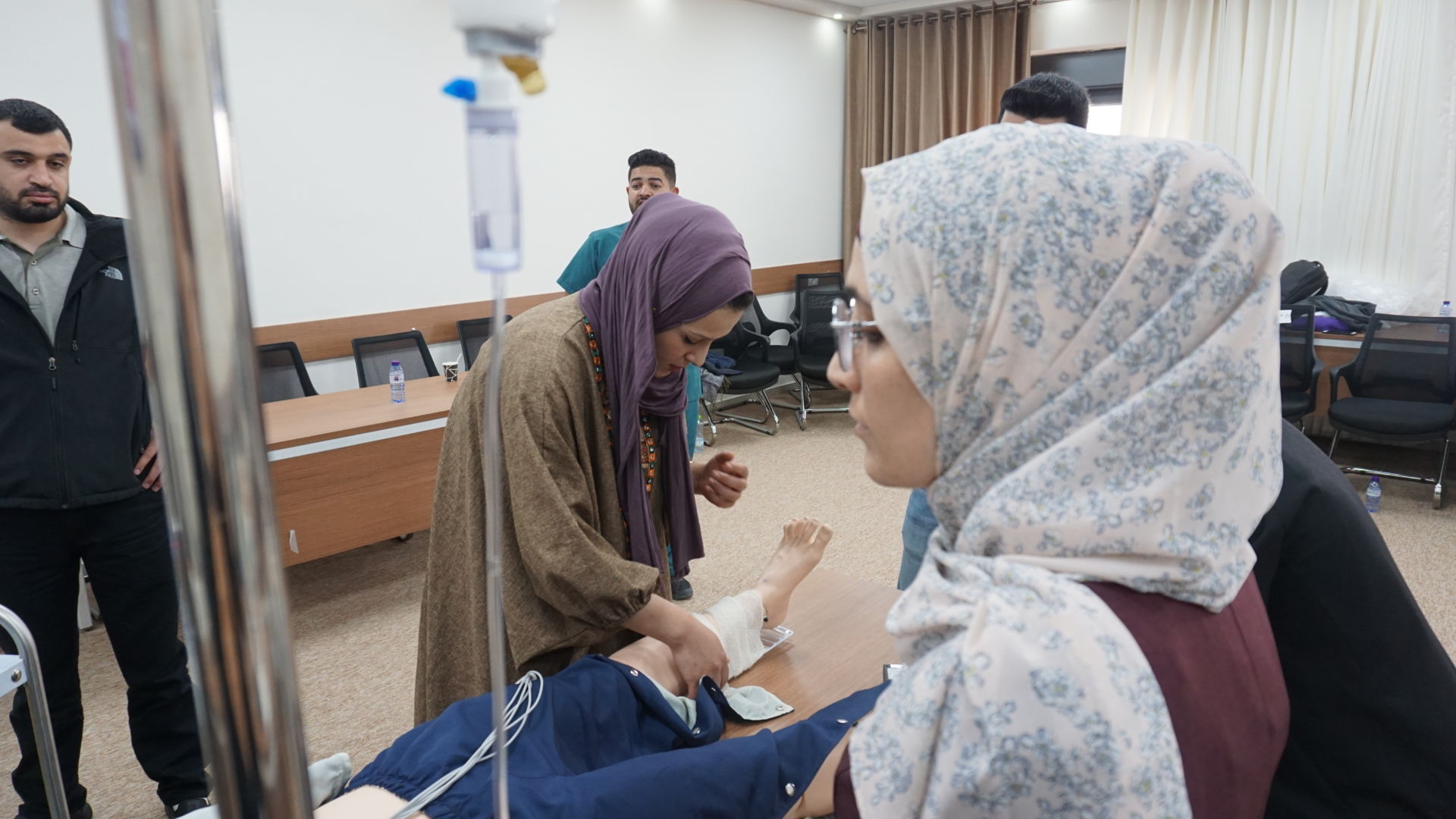
– One patient fell from at least 3 meters and stopped breathing. I had to resuscitate him, otherwise, he would have died,” Isamael Alnawaja’a tells of his experience.
– I saw him smiling today, now he is with his family, it’s an amazing feeling! I’m sure I was able to save his life thanks to PCPM and the training they organized. Now I will be able to pass this knowledge on,” Isamael Alnawaja’a continues his story.
Comprehensive efforts with the PCPM Foundation
– PCPM’s support is essential so that we can train all medics in Palestine and then continue to develop their skills. That’s why it’s so important to have our local instructors – it’s for them to carry out future training. The PCPM Foundation provided us with advanced training mannequins and content materials for the e-learning platform, Nihaya Hussein, director of the Emergency Relief Division at the Palestinian Ministry of Health, said of the project.
The PCPM has also prepared a second course for instructors on the use of ultrasound in emergency medicine. These trainings are very significant. The PCPM provided five modern ultrasound machines that went to hospitals in the West Bank. (The Foundation, as part of a second project, also provided 3 ultrasound devices to mobile clinics run by the Palestinian PMRS organization).
Palestine has needs in every area
– Our resources are very limited. Therefore, we need to build infrastructure on the ground with the support of various NGOs like PCPM. There are government and private hospitals in the West Bank. We, as the Ministry, take care of this whole system. We want to unify the knowledge among all the 900 doctors, nurses, and paramedics scattered throughout the West Bank. Furthermore, we want to train everyone with the help of local instructors trained by the PCPM,” says Nihaya Hussein.
Upon completion of the project, there are expected to be 26 PATLS instructors in Palestine. Ten in the south, eight in Ramallah (the center of the PA), and eight in the north. As well as 8 FAST ultrasound instructors (trained to use the ultrasound machine).
“Golden minutes”
According to world rescue standards, the most important factor in saving someone’s life is to react as quickly as possible right after an accident. In the case of arterial hemorrhage, the responder has only three minutes to stop the bleeding. In Palestine, the time to reach both the patient and then the ambulance to the hospital is very extended. This is affected by deficiencies in infrastructure, personnel, and the specific political situation that affects the movement of ambulances.
– The training program is focused on the first stage of assistance. From the event of an accident to the transfer of the injured person to the ambulance and then to the hospital, Nihaya Hussein explains.
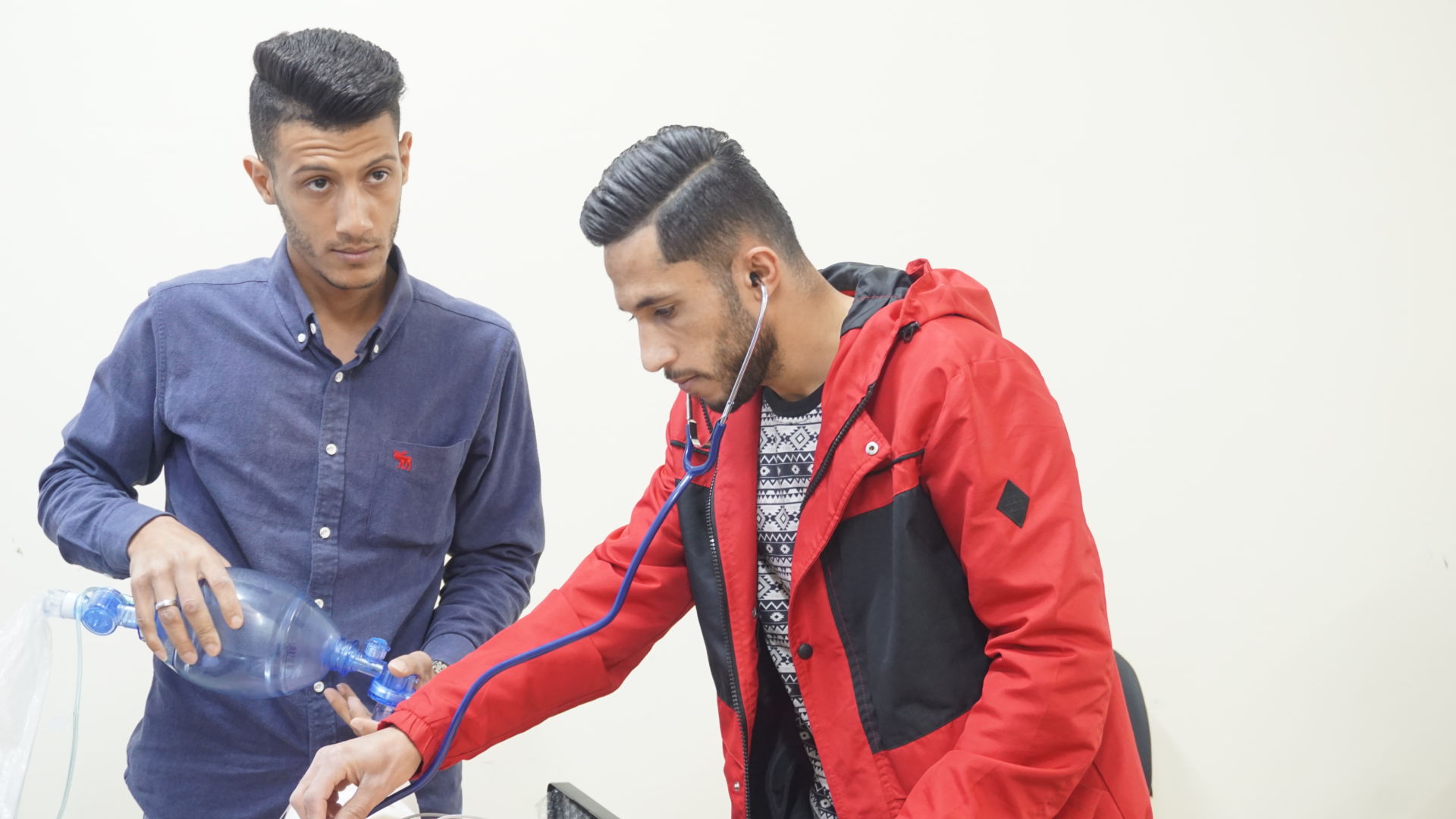
As he adds, “The moment from the event of the accident is the so-called golden minutes. Depending on what help is provided at that time often determines whether the patient recovers, dies or avoids disability”.
The director of the Ministry of Health stresses the importance of standardizing procedures.
– Everyone must operate with a common single language, this will also strongly help in providing assistance, Hussein stresses.
– Our goal is to reduce mortality and severe mutilations. The first problem is the long time it takes for injured people to reach hospitals. The second is the lack of proper training. This causes many complications for patients,” the director adds.
Importantly, medical teams regularly operate separately from each other. For example, one medical team in an ambulance brings a patient to a so-called “checkpoint,” and there another team takes over, which is why it is so important that each team has the same knowledge and skills.
Palestinians want to learn
– Our teams tell us that they are very interested in expanding their knowledge. Before working with PCPM, there was no training for nurses and paramedics in Palestine, only for doctors. This is the first time ever that we are training all medics together,” says Nihaya Hussein. In the last year, the PCPM transferred the authority to organize courses to the Palestinian Ministry of Health.
The PCPM, as part of its second segment, provides training in the use of ultrasound in emergency medicine.
– These are very significant, stresses Zuzanna Wójcińska.
– It happens very often that trauma victims have internal bleeding. Without checking the patient’s condition with an ultrasound machine, you don’t even know that something is happening to the patient, and he may be bleeding, she adds.
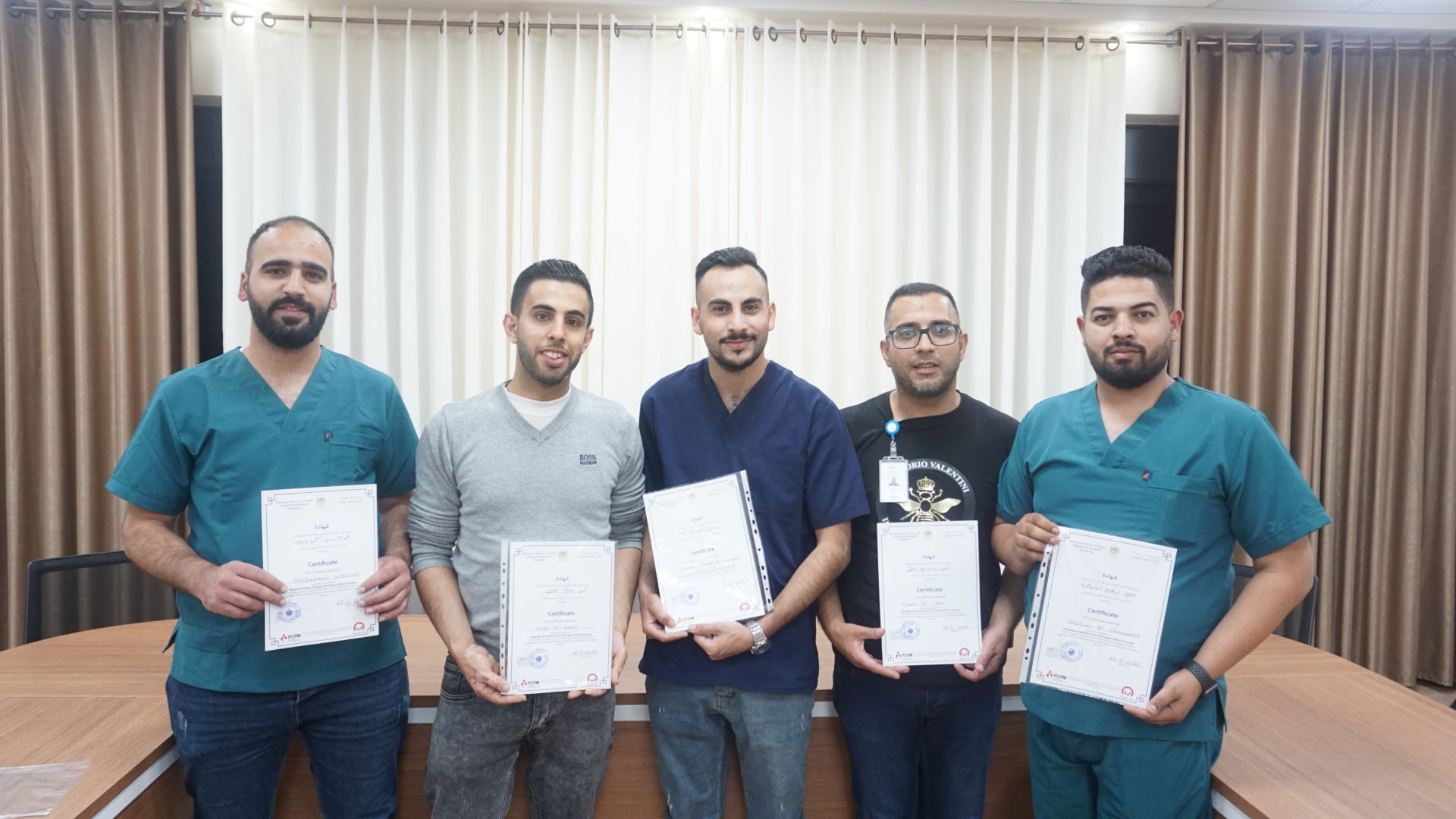
The need is very great. As Nihaya Hussein points out, not every hospital in Palestine has an ultrasound machine. Additionally, there is a shortage of trained personnel.
– We have only 6 ultrasound machines in the entire West Bank. The fifth of which was donated to us by the PCPM. We have 220 doctors, 40 of whom we want to train in the use of ultrasound in emergency medicine. Now we plan to equip every hospital with such a device, but for that, we require further support, says Hussein.
The PCPM project is funded by the MFA’s Polish Aid program. This is the largest of its kind in the Palestinian Authority.
– It is also, in our opinion, the most important. It allows us to build the system and our own capacity, stresses Nihaya Hussein.